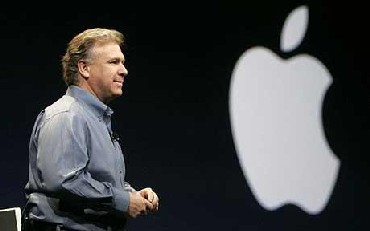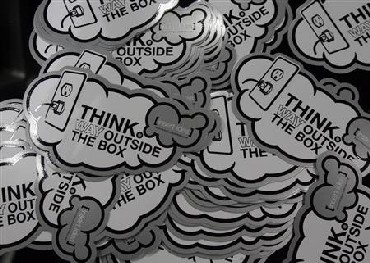Photographs: Fabrizio Bensch/Reuters Priyanka Joshi, Varada Bhat in Mumbai
Cloud computing has already rewritten some longstanding IT rules, but Google, Amazon and now Apple, are betting you want your music and other multimedia content in the cloud.
A cloud service essentially refers to the practice of storing content online and streaming it to any web-enabled device using the internet.
Globally, experts believe that instead of downloading and storing music files on their computers or hard drives, consumers will soon begin streaming music directly from the Web.
But to access cloud services seamlessly, one requires high speed internet. In India, the average internet speed fell to 0.8 mbps as per Akamai report where as the average internet speed in the world was registered at 1.9 mbps.
...
Why Cloud computing is not big in India, yet
High-speed broadband penetration in India remains at less than 1 per cent, adds Akamai. The National Broadband Plan prepared by the Telecom Regulatory Authority of India (TRAI) last year, suggested that minimum broadband speed should be increased to 512 kbps from January 1, 2011 but that is yet to become a reality.
Globally, the music industry will now have to deal with content's privacy on cloud services such as iCloud. But Indian companies are putting up a brave face.
"So far, Apple has helped the music industry ecosystem in a legitimate manner to monetise sales. Apple's iTunes has been a big revenue contributor for the music industry. But since iCloud is still in developing stages there's not much detail on how it will operate," says Hiren Gada, director, Shemaroo Entertainment.
Gada is pointing to the fact that Apple's iCloud will be a free service for music bought through iTunes that has more than 18 million songs.
...
Why Cloud computing is not big in India, yet
Image: pple is set to take on Google with cloud computing plansPhotographs: Retuers
"The iTunes Match feature will scan every song in users' libraries and match them with an Apple duplicate copy already stored on Apple's servers (in the cloud). That eliminates the need to upload a whole music collection. Apple alone can do this because of existing agreements with four major record labels," reveals Apple.
For $24.99 per year, where the record companies earn 70 per cent of that fee, Apple is hoping to put money back into the pocket of music companies.
That's probably keeping companies like Eros hopeful. "Any advancement or development in technology, which helps in smooth consumption of entertainment is always welcome. iCloud will help in further utilisation of content on various devices. Until now, with poor bandwidth we could not monetise much but with 3G and BWA roll out next year, such services can accelerate our revenues," pointed Kamal Jain, group CFO, Eros International.
Sony Music, licensing partner of Apple's service which has its Indian and regional Indian music catalogue on iTunes, is willing to give iCloud a chance too.
Shridhar Subramaniam, president, Sony (India & Middle East) too believes, "A digital library that eliminated the portability issue and works on multiple devices will be an interesting model for the Indian consumer."
...
Why Cloud computing is not big in India, yet
Photographs: Fred Prouser/Reuters
What are cloud services?
A cloud is a service that is accessed and consumed in real-time over the internet. In the context of digital music, cloud computing would allow consumers to host their entire digital music library online and stream it in real-time from a computer or internet-enabled device.
Amazon Cloud service: Amazon's Cloud Drive enables consumers to store all Amazon purchased music, books, videos etc on company servers in addition to storing content uploaded from a local hard drive.
Google's Music beta: The service is currently available via invite only. Google doesn't have an online store equivalent to Amazon's MP3 store. All music stored in Google's cloud must be uploaded from a computer.
Apple iCloud: A platform that will allow users to store content in the cloud and synchronise data across their many devices, including the iPhone, iPad, Mac, and PC.
...






article